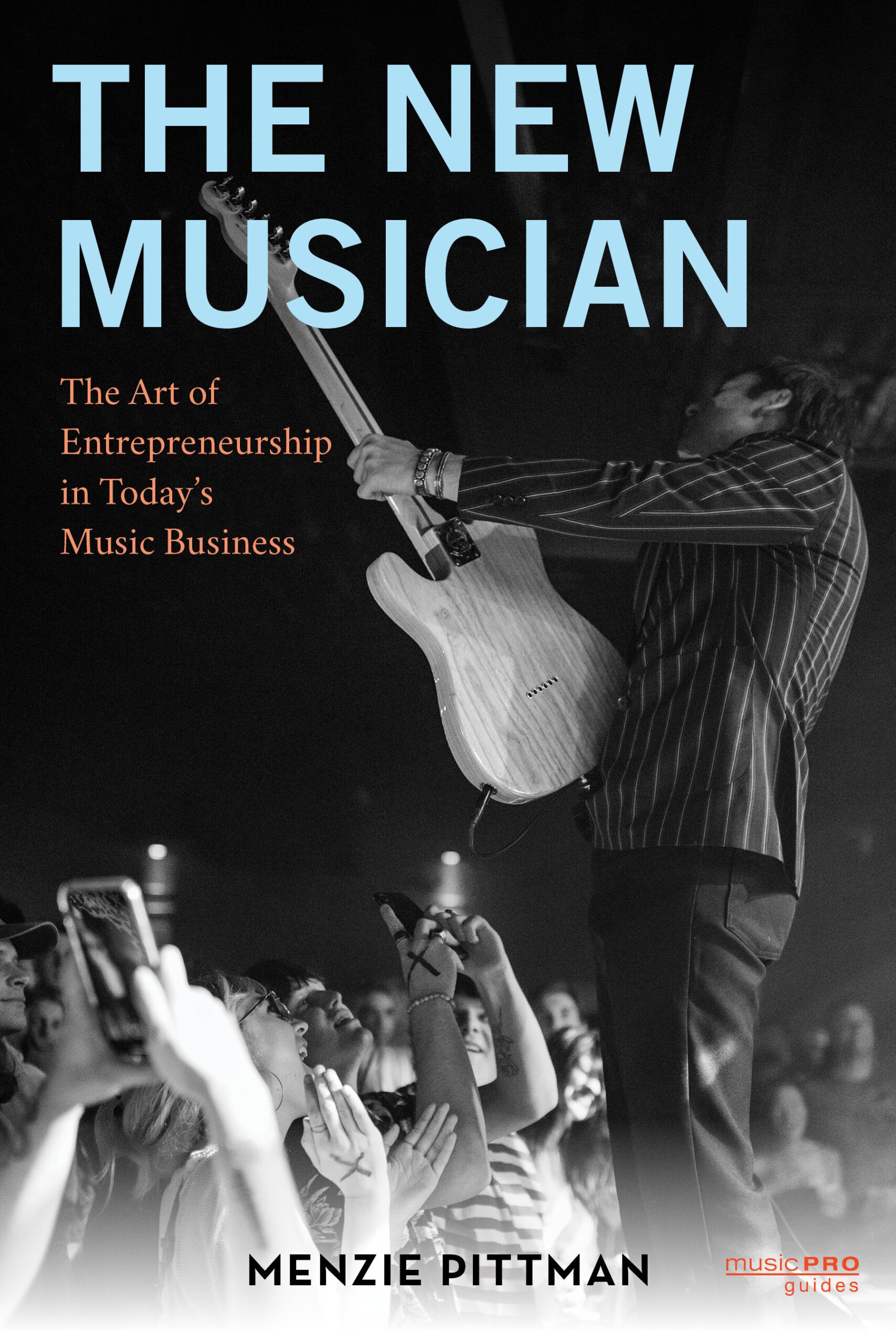A revered niche instrument that’s always held a valued role amongst players and die-hard enthusiasts of certain genres of music, resonator guitars have been in the spotlight considerably more the past decade or two – and ever-increasing sales in MI retail outlets across the nation reflect this shift.
Blues and country musicians in the 20s and 30s initially embraced the resonator six-string for its ability to (wait for it…) resonate without amplification, enabling performers to play for larger crowds in areas without PAs or, often, even electricity. Their unique timbre kept resonators in the mix, though rarely center-stage. Artists such as Keb’ Mo’, Larkin Poe, Reverend Payton’s Big Damn Band, Left Lane Cruiser, and others have brought this unique, and distinctly American instrument out of the shadows, however, and clever musical instrument dealers have been taking note.
MMR recently touched base with Ashley Atz of The Music Link and Jon Van Horne of Gold Tone Music Group to learn what models are ringing the register in 2025 and how retailers can best take advantage of this still-growing wave of enthusiasm for the resonator guitar.
For your brand, what model(s) of resonator guitars is currently the hottest seller?
Jon Van Horne: Generally our Paul E. Beard Signature Series are the hottest resonator sellers. The Top 3 would be the PBS, PBR-CA, and PBR models.
Ashley Atz: One of Recording King’s hottest-selling resonator guitars right now is the Swamp Dog Style-O Resonator (RM-997-VG). This model stands out with its distressed vintage green bell brass body, giving it a bold aesthetic that pairs perfectly with its classic, powerful resonator tone.
The hand-spun European Recording King cone ensures exceptional projection, sustain, and depth, making it a favorite among players who want an instrument that delivers both traditional bluesy growl and modern versatility. Whether used for slide, fingerstyle, or ensemble playing, the Swamp Dog continues to attract musicians looking for a distinctive and expressive resonator guitar.
Acoustic-based and acoustic-heavy music – Americana, trad Country, folk, et cetera – has been having something of a moment these past few years. To what degree is that trend impacting the profile and overall sales of resonator guitars?
AA: Resonator guitars have seen multi-digit year-over-year sales growth, thanks in large part to the rising popularity of acoustic-based music genres like Americana, traditional country, and folk. This surge is being driven not only by the broader trend toward roots-oriented music but also by a powerful combination of social media influence and effective marketing from resonator builders.
Artists like Joshua Quimby have played a key role in bringing resonator guitars into the spotlight. The accessibility of platforms like TikTok and Instagram has allowed these guitars to reach new demographics, far beyond traditional bluegrass and blues circles.
Resonator builders have embraced this momentum with strategic marketing efforts. Recording King, for instance, leverages video and social media to showcase both the traditional role of resonators and their ability to enhance modern music, bringing fresh energy to classic songs.
This blend of historical reverence and contemporary application has helped expand the appeal of resonator guitars, making them a compelling choice for a new generation of musicians.
JVH: The resurgence of acoustic-heavy music – particularly in Americana, traditional country, and folk – has certainly had a noticeable impact on the demand for resonator guitars. While resonators have traditionally been a niche instrument, closely associated with bluegrass, blues, and slide guitar styles, the broader popularity of roots-based music has elevated their visibility and desirability among both traditionalists and new players.
What features are resonator guitar players in the market for a new or additional instrument looking for in 2025?
JVH: Resonator guitar players in 2025 are looking for a mix of classic tone, modern playability, and versatility to fit a variety of musical contexts.
Cone Design: Hand-spun cones (like Quarterman or Beard-style) remain the gold standard for superior projection and dynamic response. Players are paying more attention to cone materials and sizes for a more customizable tone. Lighter Builds: Some traditional metal-body resonators can be quite heavy, so lighter alloys or chambered designs are becoming more attractive.
AA: Resonator guitar players are looking for a combination of historical authenticity, premium tonal quality, and modern innovations that expand the instrument’s versatility.
One of the most sought-after features is the hand-turned, lathed resophonic cones that set premium resonators apart. Recording King continues to lead the way by crafting spider, biscuit, and tricone cones by hand from premium aluminum billets – never settling for stamped alternatives. These cones produce the shimmer, warmth, and rich overtones that discerning players crave, whether they are traditionalists or pushing the instrument into new musical spaces.
Players are looking for the right bridge-cone combination to match their musical style. Spider bridge resonators remain a top choice for bluegrass players and ensemble musicians due to their strong fundamental tone and loud projection. Meanwhile, biscuit bridge models offer a broader range of overtones, perfect for swampy blues and solo performers. Tricone resonators, with their added sparkle and volume, continue to be popular for musicians exploring jazz, Hawaiian music, and fingerstyle playing.
While many players appreciate the vintage inspiration drawn from classic designs, modern musicians also seek contemporary refinements. Recording King has blended the past with the future through innovations like the open pedestal soundwell found in the Phil Leadbetter Signature Model, offering enhanced projection and responsiveness. Unique finishes like the Swamp Dog’s distressed look also cater to players who want a visually striking instrument that stands out on stage.
Whether it’s a true bell brass body for classic metallic resonance or carefully chosen hardwoods that enhance warmth and sustain, today’s players demand instruments made with high-quality materials. Premium components like bone nuts and maple/ebony saddles ensure maximum tonal clarity and durability, making these resonators stage- and studio-ready for years to come.
Ultimately, today’s resonator guitar players are seeking expert craftsmanship, tonal variety, and thoughtful design updates that honor the instrument’s heritage while embracing modern musical needs.
What are some strategies embraced by successful retailers when it comes to marketing and displaying these guitars?
AA: We see successful retailers use a 3-pronged combination of engaging content, in-depth product knowledge, and live experiences to effectively market and display resonator guitars. Here are some key strategies that have proven to drive interest and sales:
Video Marketing for Web and Social Media
Retailers who leverage high-quality video content on their websites and social media platforms see a significant boost in engagement. Demonstration videos showcasing the unique tonal differences between spider, biscuit, and tricone cones help educate potential buyers. Additionally, featuring artists playing resonator guitars in different musical styles highlights their versatility and inspires customers to explore new sounds.
Educating Staff and Customers
Since resonators come in various designs with distinct tonal characteristics, the most successful retailers ensure their staff can confidently explain these differences to customers. A great resource for this is the Recording King Resonator 101 course (Resonator 101), which provides essential knowledge about how different cones, bridges, and body materials impact tone and playability. Well-informed staff can make better recommendations, helping customers find the resonator that best suits their style.
In-Store Artist Performances and Clinics
Partnering with manufacturers for in-store artist performances and clinics is a powerful way to generate excitement around resonator guitars. Retailers who have hosted these events with Recording King have seen firsthand how they draw crowds and create a buzz around the product category. These events give customers the opportunity to hear resonators in action, interact with skilled musicians, and get expert insights into playing techniques and gear selection.
By combining compelling video content, knowledgeable sales teams, and engaging in-person events, retailers can create an immersive buying experience that not only boosts sales but also solidifies resonator guitars as a must-have instrument for players of all levels.
JVH: Good campaigns, video, and sound. Displaying the guitars separate from all the rest with a comparison of 2 models is a great eye opener.
Do you have any recent or upcoming resonator models you’d like to draw our attention to?
JVH: We do! Have a New/Recent resonator, The Mojo! The Gold Tone MOJO is a unique folkternative resonator guitar, combining classic style with modern features. It sports a 1-3/16″ ZeroGlide Nut, a mahogany neck with a rosewood fingerboard, and sealed guitar tuners for smooth playability. Its flamed maple body, accented with multicolor pearloid binding and a blonde nitrocellulose finish, adds striking visuals. A Lipstick Tube pickup, bone saddle, and resophonic 6-string tailpiece ensure rich, resonant tones. Weighing 6.3 lbs. with a 26-3/8″ scale, the MOJO is built for players who value style, sound, and craftsmanship.
AA: roundneck and squareneck, but here are three key models worth highlighting:
Dirty 30s Minnie Bucker Resonator
The Minnie Bucker is a powerhouse for players who love gritty, swampy tones. Featuring a mini humbucker pickup, it delivers a thick, bluesy sound that’s perfect for both slide and fingerstyle playing. The spruce top, pedestal-style soundwell, and hand-spun European Recording King cone provide a balanced mix of warmth and projection, making it a great choice for players looking to amplify their resonator sound without losing vintage character.
Swamp Dog Style-O Resonator
With its distressed vintage green bell brass body, the Swamp Dog has a striking look and a tone to match. Inspired by classic pre-war resonators, it features a hand-spun European cone that delivers incredible projection, depth, and sustain. This model is perfect for players who want a bold, vintage-style resonator with a distinct aesthetic and exceptional volume, whether for blues, jazz, or slide guitar.
Phil Leadbetter Signature Resonator
Designed in collaboration with Phil Leadbetter, this model is built for resonator players who demand versatility and clarity. It features an open pedestal soundwell, which enhances resonance and sustain, and a construction tailored for smooth playability and precise note definition. Whether used for bluegrass, country, or modern slide work, the Phil Leadbetter Signature resonates with professional players looking for a high-performance instrument with classic resonator tone.
Expectations for this market segment in the coming months?
AA: The resonator guitar market is poised for continued growth in the coming months as both traditional and modern acoustic music gain a wider audience. With more players exploring roots music, folk, blues, and even alternative styles, resonators are receiving increased attention from musicians looking for unique and expressive tones.
Regardless of economic conditions, musicians continue to seek high-quality instruments at accessible price points, and Recording King’s resonators offer premium craftsmanship, hand-spun cones, and thoughtful design at a price that makes them an easy choice for both new and experienced players.
As interest in Americana, bluegrass, blues, and even experimental acoustic styles continues to rise, expect resonator guitars to remain a key part of the conversation—both in traditional settings and as a fresh voice in new musical landscapes.
JVH: The resonator guitar market is expected to remain strong and evolving, influenced by continued interest in Americana, folk, blues, and acoustic-heavy genres.


























